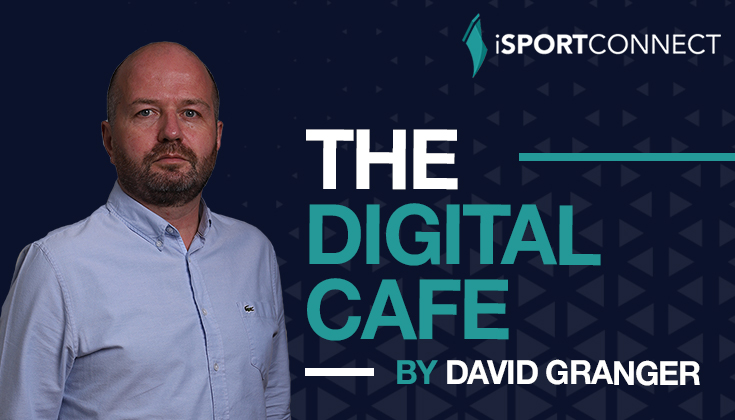“Fans Won’t Engage With A Company Simply Because Their Club Is Collecting Investment From Them.”
December 8, 2020
In the Digital Cafe this week, David Granger explores how social can enrage fans as often as it engages with them and brands entering into the conversation need to know their audience… *and* their geography.
The past month has seen some spectacular sporting faux pas on social from sponsors and broadcasters. If it wasn’t Amazon failing its geography exam, it was (official airline partner to English rugby) British Airways forgetting they shouldn’t pick sides during a, er… British tie.
“That rush to engage with fans – or in Amazon’s case the TV audience – needs to be tempered with some forethought.”
That rush to engage with fans – or in Amazon’s case the TV audience – needs to be tempered with some forethought. Instant publishing can render instant complaints. And the Amazon case went from bad to worse, when the community management stated: “…we don’t have the broadcast rights for Ireland or other territories”. Whether by bot or by design, that was inexcusable.
In their recent Fan Engagement ebook, LiveArea and Salesforce rightly pointed out that correct recognition of who fans are (rather than treating them as a bloc mass) was both important for continued engagement and good for sponsors looking to market to a new audience. However, as Amazon and British Airways found out, you cannot treat sports fans as simply any other potential set of consumers.
The content has to be both relevant and considered. The LiveArea paper mentions that if clubs “own the data, they own the fans, they own the engagement” which is not necessarily the case. If they own the fans’ data they own access to them, but the fans’ loyalty, engagement and existence as an audience should not be taken for granted. The assumption fans want what a sponsor is not always a given – fans won’t engage with a company simply because their club is collecting investment from them. The data collected by clubs on their fans should be used to personalise, enhance and deepen the relationship, but not at any price.
“Fans won’t engage with a company simply because their club is collecting investment from them.”
So. My confession… I got my first taste of community management going wrong when I was at Red Bull Racing. In the 2010 season, the team designed and built a car which was doing great things on the track, thanks to Mark Webber and Sebastian Vettel. Both were potential world champions, and both knew it. At the Istanbul Circuit on lap 40 the two went wheel-to-wheel before colliding. It ended Vettel’s race and Webber finished third.
I used Twitter at the time as our main social channel, the Red Bull F1 Spy (RIP) with his occasionally sardonic take on Paddock and track had a reasonable following and had developed into a lively, active communication between fan and team. Up until the Turkish Grand Prix, it had been good-natured gossip, the occasional light-hearted swipe at Fernando Alonso and some low-grade celeb-spotting. But that crash saw the fans descend into partisan meltdown. Webber fans blamed Vettel and Vettel fans blamed Webber. It got personal and nasty.
“And it’s that element – the emotional investment into a sport, a sportsperson, a race, a driver or a team which needs to be considered when companies enter into social communications with sports fans.”
At first (and naively) I started to reply to the critics, but quickly stopped. I attempted to explain we were one team with one goal, but the fans were not having it. Anger and profanity levels rose and rose – because unlike other businesses, sport’s consumers are fans, they’re not placid consumers.
And it’s that element – the emotional investment into a sport, a sportsperson, a race, a driver or a team which needs to be considered when companies enter into social communications with sports fans, as British Airways and Amazon found out, owning the data doesn’t mean you own the engagement, it means you have access to it.
Unless, of course… Amazon have been double-bluffing all along, knew the media storm this would precipitate and that no-such-thing-as-bad publicity which would ensue. After all, we’re still talking about it.



